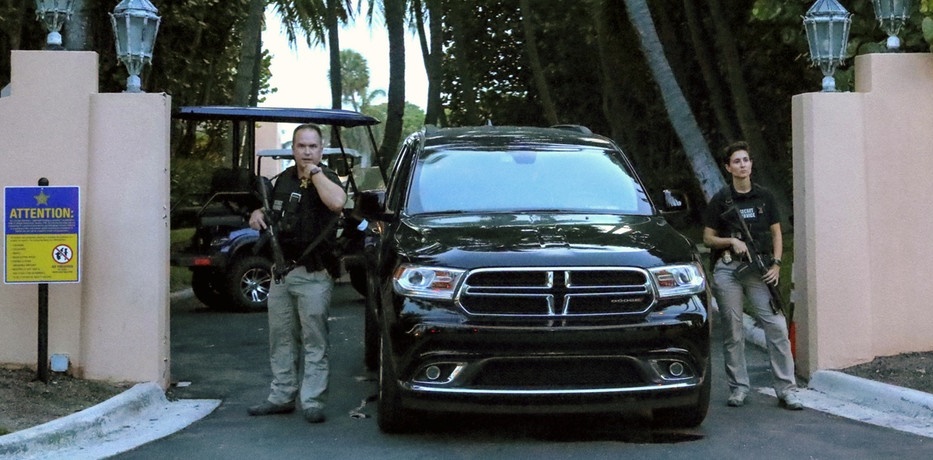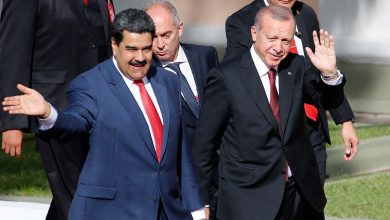
What is known about the FBI operation, what allegations are there and what does Trump himself say about it?
What happened in Mar-a-Lago?
US Federal Police agents searched former President Donald Trump’s Florida home on Monday. Trump himself made this public, writing on the Social Truth network he founded, his “beautiful home, Mar-a-Lago in Palm Beach, Florida, is currently under siege by a large group of FBI agents, searched and… occupied”.
Trump did not give any reasons for the search, but continued to speak of an “unannounced raid” that was neither necessary nor appropriate. Even his safe was opened.
Who ordered the search?
A search of an ex-president’s property requires top-level authorization from the Justice Department and a warrant from a federal judge. Justice Department officials declined to comment on any aspect of the search warrant, including whether Attorney General Merrick Garland ordered or authorized the search. The White House said President Joe Biden was not notified in advance of the search by the Justice Department.
Are there any assumptions about the background of the search?
At the end of his term in office, Trump apparently took boxes of material from the White House to Florida – media reports speak of containers with government documents, memorabilia, gifts and letters – including letters from North Korean ruler Kim Jong Un, a letter from Trump’s predecessor Barack Obama and potentially also classified national security information.
Trump has been negotiating with the authorities for months about the return and has already handed over 15 boxes to the National Administration for Archives and Documents – he confirmed this himself.
Trump’s son Eric said on Fox News that he was told that the National Archives wanted to find out if Trump was still holding back any documents. His father always kept “newspaper clippings” and took several boxes with him when he left the White House on Joe Biden’s inauguration day in 2021.
In addition, Trump is accused of destroying documents while in office – the “New York Times” journalist Maggie Haberman reported that Trump flushed documents down the toilet during his presidency. Trump rejected that. On Monday, photos finally appeared to prove this.
What is the legal situation?
The handling of classified documents and special government documents is regulated by various laws. Clearly, it is unlawful to remove such papers from government control and to keep them in places that are not subject to that control. Violations can result in imprisonment of up to five years. Improper handling – whether intentional or grossly negligent – with confidential files is also classified as a misdemeanor. Correspondingly, in the USA all correspondence from the President is archived and kept for posterity. Whether Trump faces charges or even a conviction cannot be predicted for the time being. The fact that the investigators have requested a search could be interpreted to mean that the suspicions against him are more serious than expected, according to the website of the radio station “NPR”.
How does Trump assess the process?
Trump left open what allegations against him in connection with the search were in the room, but was thoroughly outraged by the process. He spoke of “political persecution” and an attack by the “radical left-wing democrats”. He compared the search to the Watergate scandal that forced then US President Richard Nixon to resign in 1974.
Is there a connection to the investigations of January 6, 2021?
So far there is no indication of this. Like Trump himself, Trump’s supporters link the search to an alleged “witch hunt” against the ex-president.
Leading Republican Congressman Kevin McCarthy said he would launch an investigation into the Justice Department if Republicans win a majority in the House of Representatives in the fall congressional elections. Ron DeSantis, the governor of Florida, spoke of a “banana republic”. The Republican is considered a possible candidate for the 2024 presidential election.
Have there been such searches before?
No, such a case is unprecedented in American history. Thomas Schwartz, a professor at Vanderbilt University in Tennessee, has never faced an FBI raid before a former president. Even with the Watergate scandal about eavesdropping on political opponents, nothing like that happened. Schwartz explained that President Richard Nixon was not allowed to take tapes or other material from the White House when he resigned in 1974.
Many of Nixon’s files stayed in Washington for years before being transferred to his presidential library in California. Now, however, it is different, which is a sign of how unique the Trump era was – and “how unusual his behavior was,” said Schwartz, an expert on US presidential history.

